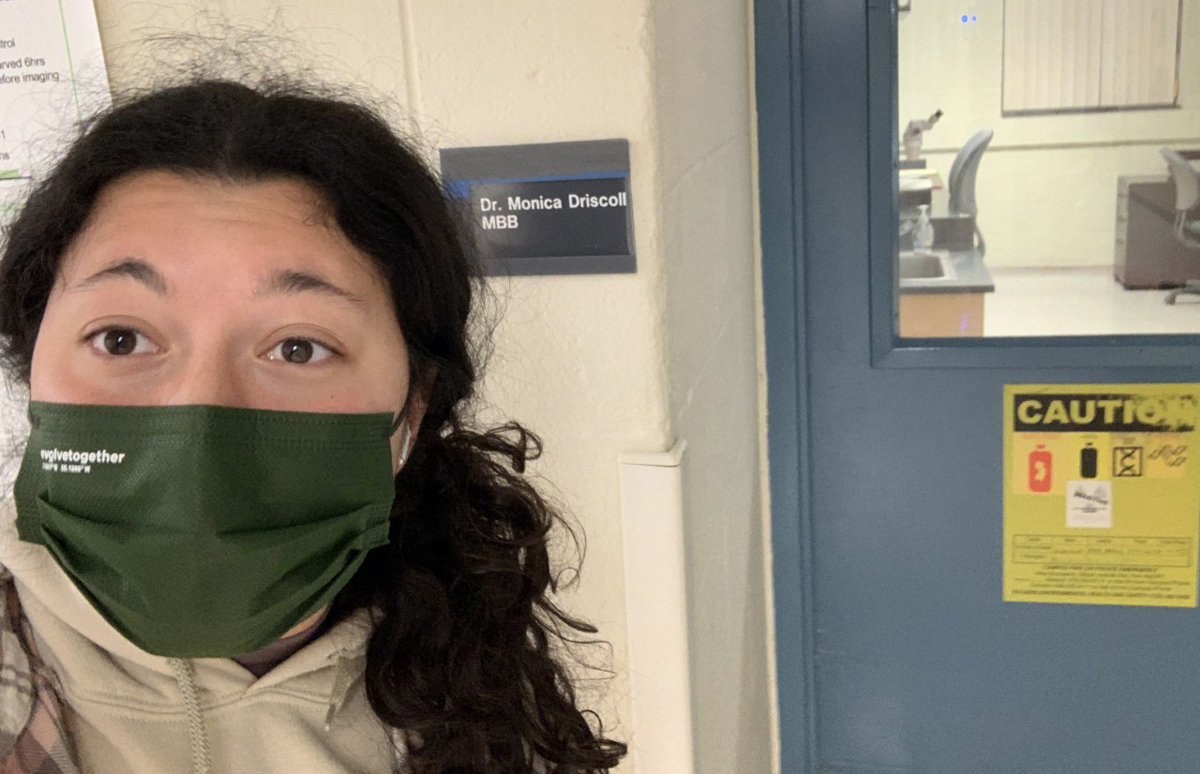As an Honors College Changemaking Mentor, my mentees often ask me about doing research. For this reason, I thought a series highlighting how students find their research opportunities could be helpful.
Many students embody the tenets of the Honors College—Curiosity. Knowledge. Purpose.—through the amazing research they are doing across Rutgers. Through this series, we’ll share student experiences in research and how they found their opportunities. Before we dive in, there are some things you should know:
- Research can be done in any field, from exploring movement in dance, to working in the field to understand an ecosystem, to scouring the archives for insight into earlier ages, to tracking the impacts of financial trends
- Research can be done by anyone, no matter your class year or age
- Research is fun
For me, finding my research experience was all about connecting with others—showing up at events, talking to the person next to me, and proactively reaching out to pursue opportunities.
Definitely Go For It!
The Honors College hosts events for invited students each spring. I volunteered to work an event for the Honors College cohort of Douglass Residential College women last year and a group of us volunteers were gathering marketing materials. I was sitting next to an Honors College Ambassador and we started talking, unsure of what to do as we waited for prospective students to come. We talked about how we ended up at the College Avenue Student Center at 10 am on a Friday. She told me her name was Archita, and I found out that she was also a biology major like me, specifically cellular biology and neuroscience. As time passed, I told her about my plan to do research over the summer at Mount Desert Island and how I would work with C. elegans; C. elegans are microscopic roundworms that favor rotting fruits. Archita eagerly responded that she was also working in a worm lab, the Driscoll lab. From there, she mentioned how she was a senior and would no longer be in the lab in the fall, leaving an opening. With this in mind, I reached out to the Driscoll lab after the event.
Monica Driscoll, Principal Investigator of the Driscoll lab, said she would check with a post- doctorate lab member, Dr. Guoqiang Wang, to see if they could take on another student. Within a few days, I began communicating with Dr. Driscoll and Guoqiang to discuss plans. Because of my full-time work in my lab over the summer and having foundational knowledge of C. elegans, I came into the new lab confidently. However, I did feel a bit of anxiety when trying to find my place. I loved the dynamic I had over the summer in the Rollins lab—the lab felt like a safe space. Once, I got into the swing of things, the Driscoll lab also became a safe space. I knew where all the fridges I would use were and where all the things I needed were. Of course, Guoqiang showed me what I needed to know and answered my questions when I forgot things.
There are regular tasks for me to do each week as I study the worms. With my sixteen-hour work week, checking the worms daily is feasible. I stop in the lab, check my worms, then stay to read or go grab food at the dining hall. My lab is flexible, and I choose my hours, which is excellent. I usually listen to podcasts while under the microscope as I move 300 worms from old plates to new plates. It helps the time go by faster and keeps me passionate about science (Ologies is the podcast if you want to check it out). I recently changed my major to molecular biology and biochemistry to pursue my passion for research with greater depth. Officially declaring my biology major has left me thinking about how close to the end of my college experience I am and what I will do after. Am I going to look at worms every day for the rest of my life?
I love research. Asking questions and engaging in scientific exploration leave me feeling happy. However, I feel this pressure to know exactly what I want to research in graduate school. I am comfortable working with C. elegans. But some part of me wonders if there is something else out there for me. After taking a quiz to find out what careers I match with, I was left feeling a bit more torn because I was about a 90% match for wildlife biologist or conservation scientist or immunologist.
Moreover, the Ologies podcast kept telling me about incredible research that I hadn’t considered as options for me, like environmental microbiology or human parasitology. I love understanding molecular biology as experienced in the lab. However, molecular biology is a field with many branches from immunology to biophysics. I accept the uncertainty of determining precisely what I will do in molecular biology research, but after all, that is the whole fun of college. I get to communicate with others, learn about what they are doing, see if it is interesting, take excellent classes that add to my views, and hopefully, ultimately make an impact through my research wherever I land.
My advice to other students is to connect with others and don’t stop exploring what you’re curious about.
